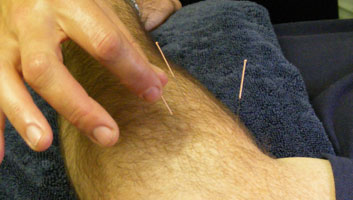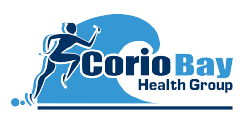
There are various methods of treating acute and chronic sporting injuries in physiotherapy. One popular and effective manual therapy technique is dry needling.
Dry needling is developed from acupuncture. The term ‘dry needling’ is used to differentiate needle injection from needling without injecting any substance into the body. Dry needling uses a western physiological model, and our knowledge of anatomy and physiology for therapeutic purposes. In contrast, Acupuncture is one of the treatment methods of Chinese medicine, which treats body as whole via regulating energy (or Qi) that travels throughout the body along defined channels and balance (Yin and Yang). Modern acupuncture also utilises the knowledge of anatomy and physiology of the nervous system.
What is dry needling?
The practice of dry needling involves the introduction of fine, sterile needles into specific parts of the body (usually muscles) and relies on the stimulation of specific reactions in the muscle tissue for its therapeutic effect.
What can dry needling treat?
Dry needling is commonly used for the treatment of:
- Sporting injuries
- Compartment tightness and shin splints
- Muscular tightness
- Hamstring and lower back problems
How does it help?
Dry needling can assist in the rehabilitation following sporting injuries by:
- Assisting in pain relief
- Releasing (myofascial) trigger points in taut bands of muscle fibres
Do the needles hurt?
The needles used for dry needling are fine and solid, unlike injection needles which are hollow. They are individually wrapped, sterilised, and for single-use only (then correctly discarded). When using accurate placement technique, you should not feel any pain when the needle is applied. You may feel a slight tingling or heaviness after they are inserted. This is a very common and encouraging sign.
Like any therapy, training and practice is important. Some physiotherapists at Corio Bay Health Group are trained in the application of dry needling. Please contact us to discuss whether dry needling is appropriate for your condition. Please also ask your physiotherapists to explain the differences between dry needling and acupuncture.
If you are interested in acupuncture, Corio Bay Health Group has three experienced acupuncture and Chinese Herbal Medicine practitioners who are more than happy to answer any of your questions.
